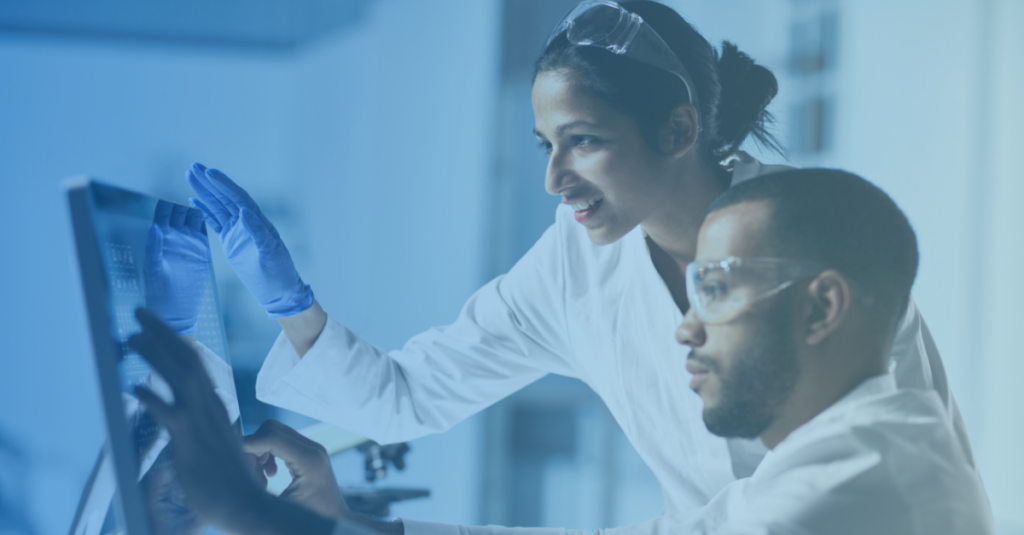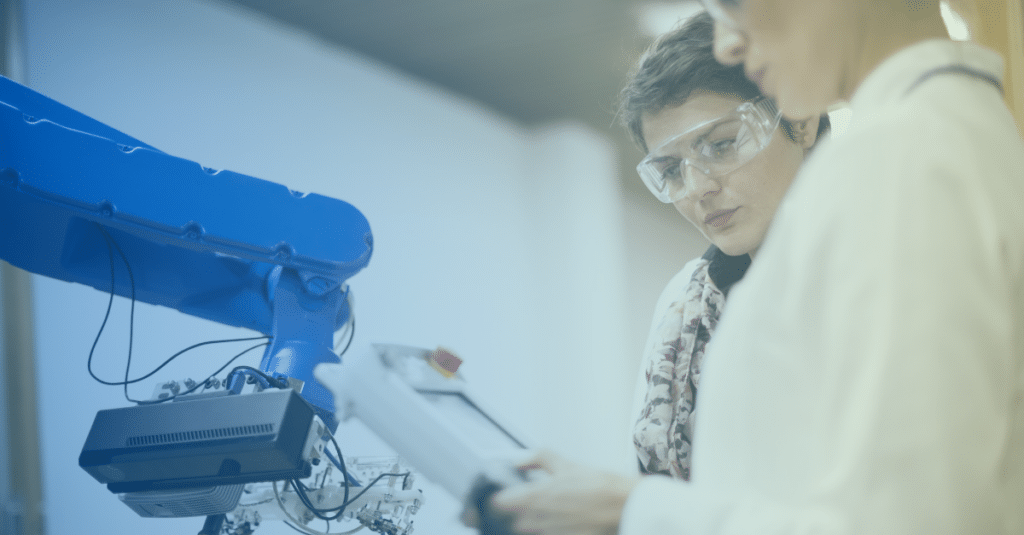Adapt and Thrive: 4 Emerging Skills for Modern Science Experts.

Advances in science and technology are opening new doors for innovation. They’re also rewriting the rulebook for what it takes to succeed in modern scientific careers. From precision medicine to sustainable manufacturing, today’s breakthroughs rely on expertise that goes beyond conventional lab work.
If you’re a science or clinical professional or aspiring to be one, the question is clear: Are you ready for what’s next? While foundational skills remain crucial, hiring managers are increasingly looking for proficiency in emerging disciplines that bridge science, technology, and global needs.
Below, we’ll highlight four critical skills shaping the future of science jobs. Spoiler alert: If you master them, you’ll stay relevant and become a highly sought-after candidate.
-
Regulatory Science for Gene Editing and mRNA Therapies
Remember when CRISPR and mRNA therapies were the stuff of futuristic headlines? That future is here. Gene-editing technologies like CRISPR and mRNA-based treatments are revolutionizing medicine, offering cures for previously untreatable diseases. Yet, these breakthroughs operate in a constantly shifting regulatory landscape.
What is Regulatory Science?
Regulatory science involves developing, understanding, and applying guidelines to ensure that innovative biologic therapies, like gene-editing treatments, are safe and effective when they reach patients. It’s the bridge between cutting-edge science and regulatory compliance. (Source: BCG – New Drug Modalities Offer Promise & Peril)
Why It Matters.
The faster these therapies can meet approval standards, the sooner they can improve lives. Scientists with expertise in FDA and EMA regulatory protocols are instrumental in ensuring these treatments maintain safety benchmarks while accelerating patient access.
How to Stand Out:
- Stay updated on regulatory trends and breakthroughs in biologics through platforms like Regulatory Affairs Professionals Society (RAPS).
- Pursue certifications in regulatory affairs to deepen your knowledge of protocol processes.
Transferable Skills: Understanding compliance in Biologics not only sharpens critical thinking, meticulous documentation, and collaboration with regulatory agencies but also hones transferrable skills that can elevate experienced professionals in the science and clinical industry. Skills like attention to detail, problem-solving, effective communication, and adaptability are especially valuable, as they ensure precision and efficiency in high-stakes environments.
Professionals with expertise in Biologics compliance stand out by showcasing their ability to navigate complex regulations, manage cross-functional teams, and stay updated on evolving industry standards.
Roles such as regulatory affairs specialists, quality assurance managers, clinical trial coordinators, and scientific project managers transfer particularly well, as they demand a mix of scientific knowledge, compliance expertise, and operational leadership. These positions benefit immensely from a strong foundation in Biologics compliance, setting you apart as a candidate ready to take on multifaceted challenges with confidence.
Looking for more insight on careers in the Biologics sector? Check out our Science & Clinical Job Market Outlook.
-
Green Chemistry and Sustainable Drug Manufacturing
Global emphasis on sustainability is reshaping pharmaceutical production. With increased pressure to reduce environmental impact, green chemistry is emerging as a must-have skill for scientists working with small molecules.
What is Green Chemistry?
Green chemistry focuses on designing synthesis methods that minimize waste, consume fewer resources, and decrease toxicity. Techniques like biocatalysis and solvent recycling exemplify green chemistry practices.
Why It Matters.
Reducing environmental waste isn’t just ethical; it’s becoming an industry standard. Companies leading this charge improve their bottom line by lowering production costs while meeting sustainability goals demanded by regulators and consumers alike. (Source: UTexas Austin- New Chemical Discovery Could Make Medicine and Manufacturing More Sustainable)
How to Stand Out:
- Learn sustainable synthesis strategies through courses or certifications in green chemistry.
- Gain hands-on experience with environmentally friendly solvents and reagents.
- Collaborate on projects emphasizing lifecycle analyses or eco-friendly processes.
Transferable Skills: Expertise in green chemistry equips you with problem-solving skills, project management experience, and strong ethical awareness. For professionals already working in the science and clinical industry, these skills can be highly transferrable and set you apart. Analytical thinking, data interpretation, and innovation are critical in roles such as R&D scientists, environmental consultants, or regulatory affairs specialists.
Additionally, strong communication skills and the ability to collaborate across teams make transitioning into project management, sustainability leadership, or policy advisory roles more seamless. Green chemistry professionals stand out for their ability to align scientific advancements with sustainability goals, a highly sought-after quality in today’s evolving industry landscape.
Looking for more insight on careers in Small Molecules ? Check out our Science & Clinical Job Market Outlook.
-
Biodegradable and Resorbable Materials for Medical Devices
Imagine a future where implanted medical devices dissolve harmlessly in the body once they’ve done their job. That future is actively being shaped by advancements in biodegradable and resorbable materials.
What is Biodegradable Device Technology?
This field revolves around materials like magnesium alloys and polylactic acid (PLA) that gradually break down in the body, removing the need for device removal surgeries.
Why It Matters.
These materials are transforming patient care by offering safer and more convenient solutions. For instance, resorbable stents reduce complications and costs, creating better patient outcomes. Experts in advanced materials chemistry are essential to developing these groundbreaking technologies. (Source: Journal of Composites Science – Biodegradable Alternatives to Plastic in Medical Equipment: Current State, Challenges, and the Future)
How to Stand Out:
- Focus on material science courses specializing in bioresorbable materials.
- Gain experience with medical device manufacturing workflows and quality testing.
Transferable Skills: A background in medical device materials builds expertise in quality assurance, innovation, and the critical application of chemistry principles. For experienced professionals in the science and clinical industry, this foundation also develops highly transferable skills such as problem-solving, attention to detail, regulatory compliance knowledge, and cross-functional collaboration. These skills are highly valued in roles like regulatory affairs, clinical research, product development, and quality control.
What sets you apart is the ability to innovate while maintaining strict adherence to safety and compliance standards, a crucial trait for roles in medical device manufacturing, pharmaceuticals, or biotechnology. Strong communication skills and an aptitude for project management also make transitioning into leadership or consulting roles within the industry seamless.
Looking for more insight on science careers in the Medical Device sector? Check out our Science & Clinical Job Market Outlook.
-
Multiomics Data Analysis (Diagnostics)
From genomics to proteomics, biological data is the key to understanding disease. But the future of precision medicine lies not in isolated datasets, but in multiomics—the integration of genomics, proteomics, metabolomics, and microbiome data. This comprehensive approach is redefining diagnostics.
What is Multiomics Data Analysis?
Multiomics involves analyzing large, interconnected datasets from different omic fields to identify patterns that illuminate disease mechanisms or treatment pathways.
Why It Matters.
Precision medicine depends on connecting the dots between the body’s different biological systems. Scientists skilled in multiomics analysis are leading the development of next-generation diagnostic tools that provide unparalleled insight into health and disease. (Source: Nature Medicine – Integrated multi-omics for rapid rare disease diagnosis on a national scale)
How to Stand Out:
- Build proficiency in Python, R, or specialized tools like Bioconductor.
- Strengthen your bioinformatics chops with certifications or courses in omics data integration.
- Focus on mastering visualization techniques to make complex data actionable.
Transferable Skills: Data analysis skills are highly transferable within the science and clinical industry, opening doors to roles in health tech, bioinformatics, big data management, and beyond. For experienced professionals, key skills that set you apart include advanced statistical analysis, programming in languages like R or Python, data visualization, and machine learning applications. Expertise in regulatory compliance, clinical trial data management, and knowledge of electronic health records (EHR) systems also provide a significant edge.
Roles such as clinical data analyst, health informatics specialist, biostatistician, and computational biologist are natural transitions for those with a science or clinical background. Additionally, project management, communication, and domain-specific knowledge in areas like genomics or pharmacology can position you as a versatile and valuable asset to interdisciplinary teams.
Looking for more insight on careers in Diagnostics? Check out our Science & Clinical Job Market Outlook.
Your Next Step in a Future-Proof Career.
The scientific landscape is evolving, and those who adapt will thrive. Whether your passion lies in biologics, sustainable chemistry, medical devices, or diagnostics, these four skills will set you apart in the dynamic world of science jobs.
But the skills you choose aren’t just about the jobs of today. They’re about contributing to a future where science, technology, and sustainability collide to improve lives across the globe.
Partnering with a leading life sciences staffing agency like Kelly Science & Clinical can help you take the next step in your career. With decades of industry expertise, we connect professionals like you with opportunities that match your unique skills and ambitions. From personalized job matching to guidance throughout the hiring process, we’re here to support your success in these rapidly growing fields.
Are you ready to take your career to the next level? Explore Science & Clinical Jobs and discover roles tailored to your unique expertise.
View Related: Article Career advancement
You might like
How to be a good substitute teacher.
5 minute read
How to be a good substitute teacher.
5 minute read
Find your next job
Discover thousands of temporary, full-time, and remote jobs for beginning and experienced job seekers.


